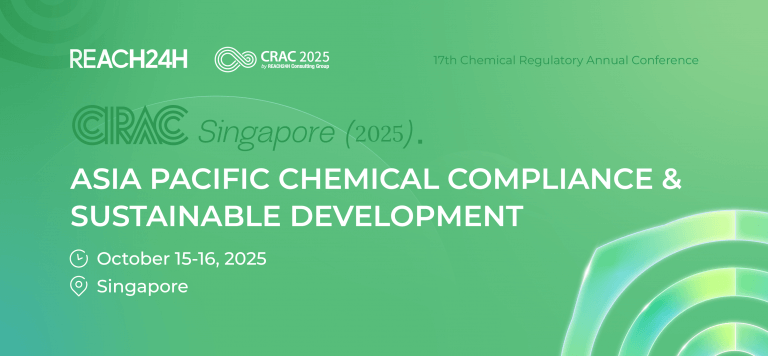Overview
The Philippine Toxic Substances and Hazardous and Nuclear Wastes Control Act (R.A. 6969), established in 1990, regulates the production, importation, and use of chemicals within the country. As part of its regulatory framework, the law requires manufacturers and importers to submit a Pre-Manufacturing and Pre-Importation Notification (PMPIN) to the Department of Environment and Natural Resources (DENR) before introducing new chemicals into the market. This article will break down the essential details of the PMPIN process, including its scope, exemptions, and how businesses can ensure compliance.
Who Regulates PMPIN Process: DENR-EMB
The Environmental Management Bureau (EMB) under the DENR is responsible for overseeing the PMPIN process. The EMB ensures that all chemicals are assessed for safety and environmental impact before they are produced or imported into the Philippines.
Who Needs to File a PMPIN?
The PMPIN applies to:
Importers who intend to import new chemicals to the Philippines.
Manufacturers inside the Philippines who producing new chemicals.
A "new chemical" refers to any substance not listed in the Philippine Inventory of Chemicals and Chemical Substances (PICCS) and which was firstly introduced to the country after December 31, 1993.
Exemptions to the PMPIN Requirement
Certain substances and products exempt from the PMPIN include:
Formulations that do not contain any new chemical substances.
Natural substances (unprocessed or minimally processed).
Products regulated under other laws (e.g., radioactive materials, pesticides, pharmaceuticals, food, and cosmetics).
By-products and non-isolated intermediates.
Chemicals produced or imported with quantities less than 1 ton per year.
Polymers meeting specific criteria.
Types of PMPIN Submissions
There are two types of PMPIN submissions: Abbreviated Form and Detailed Form. To decide which form is applicable depends on whether the chemical is listed in any recognized international inventories.
Abbreviated Form
Application Form
Safety Data Sheet (SDS)
Literature or test reports (physicochemical, toxicological, or ecological) or a summary.
For chemicals listed in the US, EU, Australia, Japan, Canada, or South Korea chemical inventories but not in the PICCS.
Review time: 90 working days.
Detailed Form
Application Form
SDS
GLP (Good Laboratory Practice) test reports for physicochemical, toxicological, and ecological data.
For chemicals not listed in any international chemical inventory.
Review time: 120 working days.
Once the submission is approved, the DENR-EMB will issue a PMPIN Certificate. Additionally, upon the first importation or manufacturing, a Notice of Commencement (NOC) must be submitted. After one year from the NOC submission, the chemical will be officially listed in the PICCS.
Small Quantity Importation (SQI) License
If a new chemical is manufactured or imported in quantities of less than 1 ton per year, businesses can apply for a Small Quantity Importation (SQI) license. With this approval, companies are exempt from the PMPIN process. The required documents for SQI include:
Application Form
SDS
The SQI license is valid for one year or until the annual production/import quantity reaches 1 ton. After the one-year period, the license can be renewed up to five times for the same chemical.
Polymer Exemptions
Polymers that meet certain criteria may be exempt from the PMPIN process. These include:
Polymers whose monomers are all listed in the PICCS.
Polymers containing new monomers or new reaction intermediates with a feed ratio of less than 2%.
Low Concern Polymers (PLCs) meeting specific molecular weight and low oligomer content requirements.
To apply for polymer exemptions, businesses must submit:
Application Form
Polymer characterization data (e.g., GPC/IR)
SDS
The official review period for polymer exemption requests is 20 working days.
REACH24H's Services
REACH24H offers comprehensive consulting and compliance services for companies navigating the PMPIN process, including:
Regulatory Consultation: In-depth analysis of the PMPIN requirements and exemption scenarios.
New Chemical Identification: Assistance with identifying whether a chemical is already listed in the PICCS or recognized international inventories.
Customized PMPIN Filing Plans: Tailored strategies for submitting the appropriate PMPIN form based on your product’s characteristics.
Post-Submission Compliance: Support with the Notice of Commencement and annual reporting obligations.
Training Services: Tailored regulatory compliance training for your team.
Conclusion
Navigating the Philippines' chemical regulations can be complicated, but understanding the PMPIN processand the requirements set by the DENR-EMB is crucial for ensuring compliance. If you're importing or manufacturing new chemicals in the Philippines, it's essential to stay informed about these regulatory requirements to avoid penalties and delays in your operations.
For further assistance in navigating the PMPIN process and ensuring compliance with Philippine chemical regulations, please feel free to contact us at customer@reach24h.com.





